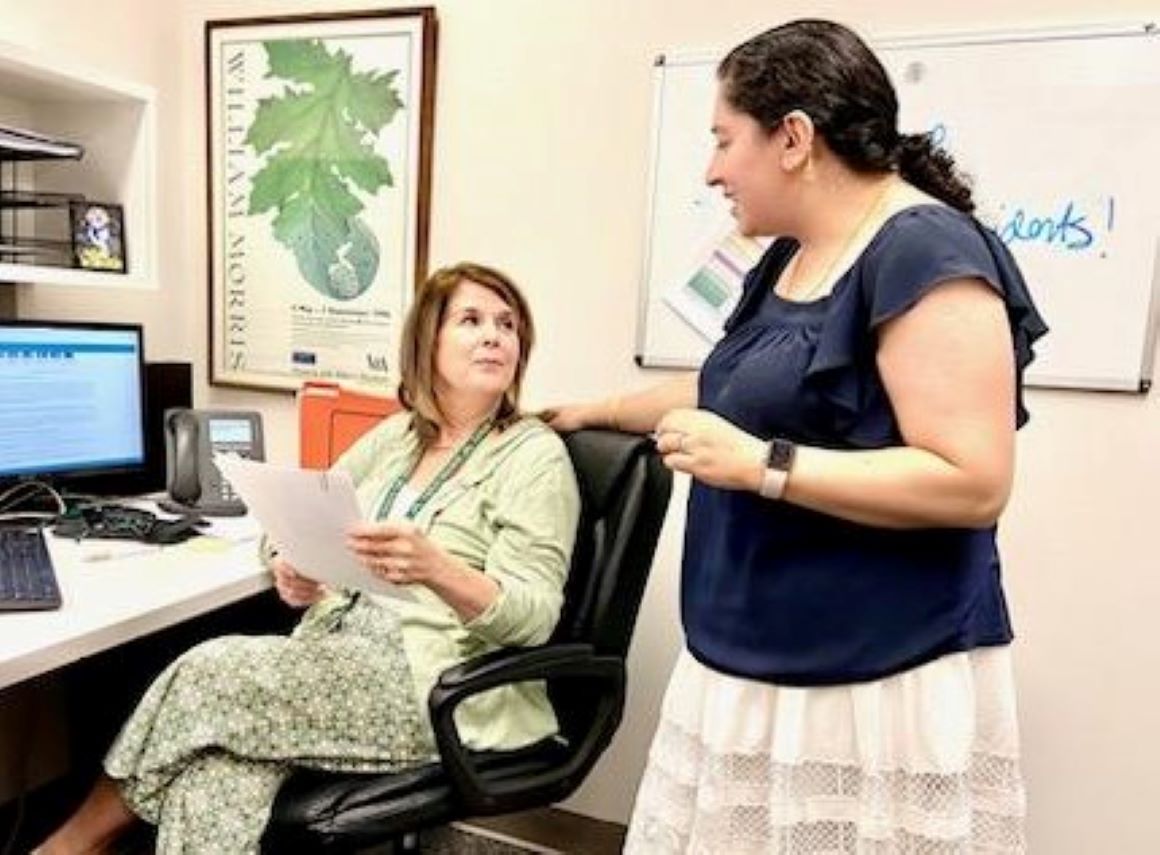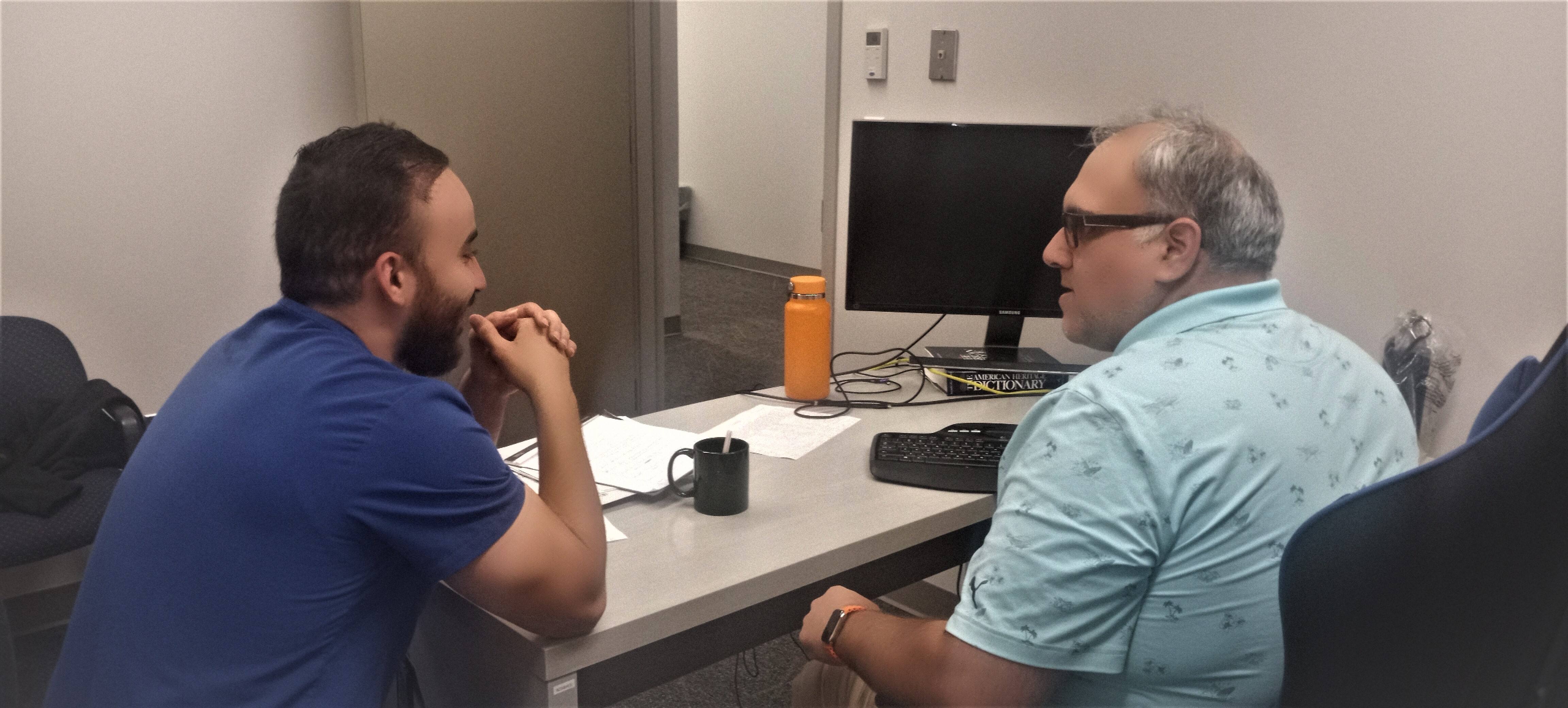Graduate Medical Education
The Department of Neurology at Wayne State University School of Medicine is a traditional academic institution that has close ties with medical students as well as the responsibility for training post-graduate residents and fellows at the Detroit Medical Center.
Resident and Faculty Handbook 2023 Edition
Neuroscience Courses
Clinical neuroscience begins in the second year of medical school with the Nervous system course. Our nationally and internationally recognized faculty in the clinical and basic sciences provide students with the knowledge to apply basic neuropathophysiology to real-world clinical cases. This course is offered yearly. The course director for the Human Disease Foundation segment III course is Dr. Deepti Zutshi, MD, FAAN, from the Department of Neurology.
Third and Fourth Year Clerkships
At the WSUSOM, clinical neurology is a mandatory 3 or 4 week clerkship that all third-year medical students must rotate in. Year III students have the opportunity to rotate on the inpatient wards at Detroit Receiving Hospital or Harper University Hospitals, the Neurocritical Intensive Care Unit, and a variety of clinics including general neurology, epilepsy, movement disorders, neuromuscular, neuroimmunology, and dementia/neurodegenerative specialties. Faculty to student ratio in the clinics is 1:1. The clerkship is run by Dr. Maher Fakhouri, M.D., Department of Neurology.
Fourth year medical students interested in having a tailored approach to clinical neurology can apply for additional electives. Subspecialty clinics such as epilepsy and pregnancy, geriatric epilepsy, a nationally recognized Charcot-Marie-Tooth Clinic as well as procedural botox clinic and neuropsychology evaluations are just some of the outpatient experiences students can explore. Additional senior medical student roles in the neurocritical care unit, epilepsy monitoring unit and experience in the electroencephalography and nerve conduction/electromyography can also be tailored for students.
Student Interest Group in Neurology
The Student Interest Group in Neurology is an active association on the medical school campus with monthly meetings. Neurology residents and medical students often share didactics and additional teaching sessions such as clinical skills training, brain cutting labs and volunteer work at the Michigan Science Museum during Brain Awareness Week. Student leaders work closely with the faculty supervisor, Dr. Deepti Zutshi and these events are directly supported by the Department of Neurology and the American Academy of Neurology. Students interested in neurology may contact Dr. Zutshi to discuss future career plans in neurology residency. Scholarships for research are supported by the American Academy of Neurology and applications can be found at the American Academy of Neurology (AAN) website. Additionally, students seeking research projects can peruse a list of clinical and basic science faculty research. Click here to view the available research projects.
WSU Neurology Residency Program at the Detroit Medical Center (DMC) Graduate Medical Education
Neurology Residency Program

The WSU Neurology Residency Program at the DMC offers residents pursuing post-graduate training in neurology the opportunity to train in a busy, high acuity urban hospital network for patients who live in the world's automotive capital, Detroit. Patients in the metro Detroit area, the surrounding Southeast Michigan suburbs and Canada give residents a broad ethnic and socioeconomic patient population to treat and serve. This unique patient population mix translates to exposing our residents to diverse neurologic pathology that is primed to provide top class clinical experience and training. Our faculty is composed of excellent clinicians dedicated to shaping the next generation of competent and compassionate neurologists to practice in an evolving health care environment.
For more information, please explore the links to the left.
Neurology Fellowship Programs
The Department of Neurology also offers a diverse range of ACGME-accredited fellowships, including: Clinical Neurophysiology (EEG, EMG or split track), Epilepsy, Vascular Neurology, Neurotrauma/Neurocritical Care, Neuro-oncology, Movement Disorders and Neuroimmunology. The admission requirements and information about each fellowship is provided in the links to the left.

